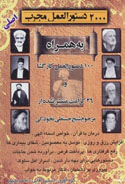Islam and Traditional Sexual Ethics
For Muslims, the institution of marriage based on mutuality of natural interest and cordiality between spouses represents a sublime manifestation of the Divine Will and Purpose. This is discernible in the Qur’anic verse cited below:
وَمِنْ آيَاتِهِ أَنْ خَلَقَ لَكُم مِّنْ أَنفُسِكُمْ أَزْوَاجًا لِّتَسْكُنُوا إِلَيْهَا وَجَعَلَ بَيْنَكُم مَّوَدَّةً وَرَحْمَةً
And one of His signs is that He created mates for you, that you may find rest in them, and He envisaged between you love and compassion ... (Quran, 30:21)
According to Islamic tradition (sunnah), marriage has been deemed to be an essential requirement. Celibacy has been regarded as a malevolent condition fraught with evils.
The Islamic approach concerning marriage and morals differs from what is known about some of the traditional moralizations of a negative kind. Surprisingly enough, certain traditional moralists regarded sexuality as something basically wicked. They viewed sexual intercourse; even with ones legal spouse, as impure, evil, undesirable, destructive, and as if it were characteristic of the guilty and fallen.
Still more surprising is the generalized view harboured in the West that the traditional world commonly believed in the superstition that ascribed an evil connotation to everything pertaining to sex. The famous Western philosopher, Bertrand Russell, is no exception in this regard. In his book: Marriage and Morals, he generalizes that:
" ... anti-sexual elements, however, existed side by side with the others from a very early time, and in the end, where ever Christianity and Buddhism prevailed, these elements won a complete victory over their opposites. Westermarck gives many instances of what he calls 'the curious notion that there is something impure and sinful in marriage, as in sexual relations generally.
In the most diverse parts of the world, quite remote from any Christian or Buddhist influence, there have been orders of priests and priestesses vowed to celibacy. Among the Jews the sect of the Essenes considered all sexual intercourse impure. This view seems to have gained ground in antiquity.
... There was indeed a generalized tendency towards ascetism in the Roman empire. Epicureanism nearly died out and stoicism replaced it among cultivated Greeks and Romans. ... The neo-Platonists were almost as ascetic as the Christians. From Persia the doctrine that matter is evil spread to the West, and brought with it the belief that all sexual intercourse is impure. This is, though not in an extreme form, the view of the Church ..." 1
Negative sexual attitudes continued through the centuries to affect masses of credulous people, in an adverse and also frightening manner of repugnance towards sex. The high incidence of psychosomatic disorders and spiritual ailments is largely and uniquely attributed by some psychoanalysts to a widespread prevalence of deeply ingrained negative sexuality.
What could have been the causative factors in the misconceptions about sexuality? What could be the reasons for men to deny themselves the natural satisfaction and the psychosomatic well being associated with healthy and desirable sex? Why should people lead their lives, so as to virtually condemn an essentially wholesome part of their lives? These are some of the complex questions for which thinking men have yet to provide meaningful and convincing answers. Yet, we all know that there could be many different reasons for, and causes of, aversion to human sexuality.
Apparently, the reasons include prejudicial thinking about sexual desire and intercourse. The prejudice was carried to the extreme among the Christians, in organizing their churches and the clergy.
The celibacy of Jesus Christ inspired them to the effect that married status for saints and preachers was considered tantamount to pollution of their chastity and piety. Accordingly, Popes are always chosen from among unmarried priests. In fact, all the members of the Catholic clergy are bound by their oaths of celibacy towards remaining virtuous.
Bertrand Russell says:
"Two or three beautiful descriptions of this institution (marriage) have been culled out of the immense mass of the patristic writings; but in general, it would be difficult to conceive anything more coarse or repulsive than the manner in which they regarded it . ... The object of the ascetic was to attract men to a life of virginity, and as a necessary consequence, marriage was treated as an inferior state . ... To 'cut down by the axe of Virginity the wood of Marriage' was in the energetic language of St. Jerome, the end of the saint"2
Church approves marriage for purpose of human procreation. The need for propagation of human species is not construed as something adequate to lift the stigma of impurity from any sexual act. Another reason for conceding marriage is to eliminate fornication between men and women. Again to quote Bertrand Russell:
"Christianity, and more particularly St. Paul, introduced an entirely novel view of marriage that it existed not primarily for the procreation of children, but to prevent the sin of fornication" 3
The Catholic church regards marriage as sacrosanct and binding until death intervenes. Accordingly, dissolution of marriage, or divorce, is not permitted. The prohibition of annulment of marriage or divorce may have something to do with a possible desire to atone for the original sin, resulting in the expulsion of Adam and Eve in an unmarried state.
Irrational attitudes towards women prevailed among some of the ancient peoples. These included a notion that a woman was not a complete human being; for, her situation as a creature might well lie somewhere between a human being and an animal. Also, she was devoid of an articulate spirit, so that she could never make it to Heaven! Similar other superstitions were rampant in the past.
Fortunately, however, the aforementioned beliefs and notions were not universally carried to the extreme. Any natural limits of women, as identified and evaluated in the past, were not encroached upon. Any impact of traditional ways of thinking did not go beyond cultivation of a sense of pride by men and inculcation of a sense of inferiority among women through generations.
Apparently, the belief in the inherent wickedness of sexual desire and intercourse made men and women absolutely and equally distressed in spiritual terms. Moreover, it caused a rather demoralizing conflict between the natural instinct's urge and the religious or sectarian belief about wickedness of carnal desire and sexual intercourse.
Spiritual ailments and unhappiness arising from the aforementioned conflict included disharmony between genuine natural desires and socially induced aversion towards their fulfilment. The problem assumed extraordinary proportions, in as much as it became the subject of intensive investigations by psychologists and psychoanalysts.
In the above context, the revolutionary logic of Islam can be of extraordinary interest. Islam gives no slightest indication to the effect that sexual desire is evil in itself, or that it is necessarily fraught with evil consequences. On the contrary, the Islamic endeavour in this regard is aimed at regulating human sexuality in a most humane manner.
In the perspective of Islam, human sexual relations are limited only by the genuine interests of the present society, or the posterity. In this connection, the Islamic approach follows well known guidelines, leading neither to any sense of sexual deprivation and frustration, nor to any repressed or inhibited sexual desire. It is a pity that scholars, like Bertrand Russell, who has evaluated the Christian and Buddhist morals, have refrained from specifically commenting on Islamic ethics.
In his book: Marriage and Morals, Bertrand Russell mentions in passing about Islam. For example, he says:
"Great religious leaders, with the exception of Mohammad and Confucius, if he can be called religious - have in general been very indifferent to social and political considerations, and have sought rather to perfect the soul by meditation, discipline and self-denial."4
Nonetheless, it is true that from the Islamic point of view sexual desire is not only compatible with human intellectuality or spirituality, but is evidenced as part of the nature and temperament of the prophets. According to one tradition (hadith), love and affection for women were characteristic of the moral conduct of the prophets:
من اخلاق الانبياء حب النساء
“It is part of the morals of the prophets the love for women..” 5
There are several other traditions and narrations indicating prophetic regard for women. According to some, the Prophet of Islam and the pious Imams too have all explicitly demonstrated their love and regard for their wives and the womenfolk. At the same time, they have strongly disapproved of any human inclination towards celibacy or monasticism.
One of the companions of the Holy Prophet, Uthman ibn Maza’un, devoted himself to Allah's worship to such an extent that he kept fast practically everyday, as well as regular nightly vigils in prayers. His wife brought the matter to the attention of the Prophet, who reacted with visible annoyance and proceeded at once to where his companion was and said:
"O Uthman! Know that Allah has not deputed me to encourage any monastic life. My Shariah laws are meant for enhancing and facilitating human accomplishment of their natural lives. Personally, I offer my prayers, keep fast and maintain my conjugal relations. Accordingly, to follow me in Islam means conforming to the traditions laid down by me, which include the requirement that men and women should marry and live together harmoniously"
The Islamic position as explained above makes it clear that human sexuality in itself neither represents any inborn wickedness, nor it invariably signifies evil consequences. Furthermore, it clarifies that wickedness has been traditionally ascribed to human sexuality in the process of evolving religious morality in the Western world. Now, the Western world has taken a 180- degree turn in reversing its extreme traditional morals.
At present, the Western world believes in respecting and freeing sexual desires and involvements through lifting of traditional moral restraints. In fact, many Westerners now favour sexual permissiveness. They contend that whatever morality has been inherited by them carries no more than a religious connotation. They claim that today's new morals are based on not only philosophical, but scientific reasons.
Unfortunately, the negative sexuality traditionally and recently evolved in the West has penetrated the moral fabric of our society, too.
This is despite all the erstwhile difficulty of international communication. Now with the improved means of communication and regular international contacts, the modernistic Western speculations are virtually flooding our society, as will be explained later on herein.
1.
Bertrand Russell: Marriage and Morals, George Allen and Unwin Ltd., London, Paperbacks Ed. 1976, p.p. 31-32.
2.
Bertrand Russell: Marriage and Morals, George Allen and Unwin Ltd., London, Paperbacks Ed. 1976, p.p. 39-40.
3.
Bertrand Russell: Marriage and Morals, George Allen and Unwin Ltd., London, Paperbacks Ed. 1976, p.p. 35.
4.
Bertrand Russell: Marriage and Morals, George Allen and Unwin Ltd., London, Paperbacks Ed. 1976, p.p. 175-176
5.
Wasail, vol.3, p. 3
مطالب مشابه با این موضوع:
وبگــــــــــردی طلبۀ پاسخگو
- فایل اعمال و رفتار های خلاف قانون جناب آقای حسن روحانی
- در کنج خانه طلبهها چه میگذرد؟
- سکوت چند ساله مسئولان حوزه در قبال حملات وحشیانه به طلاب!
- می گویند که مملکت مملکت آخوندهاست!!
- یک ماجرای تلخ که خانم ها با تأمل بیشتر بخونند
- جریان های تکفیری موجود در عراق و نحوه شکل گیری آنها
- سیر تکاملی تفکر سلفیه چگونه بوده است؟
- بداء در قرآن و حدیث چگونه مطرح شده است؟
- پیامبر (ص) با مخالفین خود چگونه بر خورد می کرد؟
- سبک زندگی حضرت زهرا سلام الله علیها
- ملاک کرامت و شرافت افراد، انسانیت است یا جنسیت؟
- رنگ و پوشش های رنگی در اسلام
- حجاب، زنان را افسرده میکند و مانع پیشرفت اجتماعی آنهاست!!!
- علوم لدنی معصومین
- مگر ولی فقیه معصوم است که ولایت مطلقه دارد؟
- اگر خدا ازعاقبت ما اطلاع دارد قیامت برای چیست؟
- آیا بجای نماز خوندن، پیانو یا سه تار بزنم؟
- چرا مراسم عزاداري امام حسين(ع) پيش از شهادت ايشان صورت ميگيرد؟
- چرا امام حسين(ع) در كربلا براي رفع تشنگي از خداوند طلب باران نكرد؟
دانــــــلود های مفیـــــــــــــــــــد
- دانلود پاورپوینت شناخت وهابیت و صهیونیسم و ارتباط با همدیگر
- دانلود دو پاورپوینت اجرای عید غدیر خم
- دانلود پاورپوینت احتجاج اميرمؤمنان (ع) به غدير
- پژوهشی در کلام و پیام مقام معظم رهبری پیرامون ماه رمضان
- خطبه شعبانیه و خطبه امیرالمومنین(علیه السلام) پیرامون روزه و ماه رمضان
- دانلود پاورپوینت و pdf تفاوت های زن و مرد
- دانلود جزوه ساعات سعد و نحس(زمان نوشتن دعا)
- تقویم مذهبی شمیم یار 96 مخصوص کامپیوتر
- دانلود نرم افزار «شیعه شناسی»
- دانلود پاورپوینت ساختار خانواده و مسایل آن
- دانلود کتاب دایره المعارف جنسی
- دانلود نکات جذاب دوران عقد
- دانلود کتاب درمان سرد مزاجی و بی میلی جنسی بانوان
- دانلود کتاب حسادت کودکان
- دانلود کتاب درمان خستگی وناتوانی جنسی
- دانلود پاور پوینت اسیب های ازدواج وخانواده
- دانلود پاورپوینت هشت گام برای تحقق رویا به واقعیت
- دانلود پاورپوینت تقویت اراده
- دانلود پاورپوینت موفقیت وروشهای رسیدن به ان
- دانلود پاورپوینت هنر رفتار با افراد دشوار
- دانلود پاورپوینت جملات جالب وجذاب روحیه بخش بزرگان
- دانلود پاورپوینت راههای مقابله ودرمان استرس
- دانلود پاورپوینت نیازهای اساسی کودکان
منبــــرهای مکــــــــــــــــــتوب
- منبر مکتوب: روز عرفه و فرصت ها
- منبر مکتوب: سبک زندگی امام باقر علیه السلام
- منبر مکتوب: سه نیاز مومن (امام جواد علیه السلام)
- سخنرانی سلسله ای و چند جلسه ای مناسبت ماه رمضان
- دانلود 30 جلسه سخنرانی ماه مبارک با موضوع تنها مسیر
- موضوعات پیشنهادی سخنرانی برای محرم
- فضائل حضرت قمر بنی هاشم علیه السلام
- برکات وجود ابا عبدالله علیه السلام بر عالم
- بررسی بُعد اخلاقی،عبادی و عرفانی عاشورا
- آخرين وصيت امام حسين عليه السلام
- اولین علت رویاروی در کربلا؛ دوری از یاد خدا
- هميشه حزن؟ شادي چرا نه؟ - شب دهم محرم
- چرا نفرين ؟ - شب نهم محرم
- نماز ظهر عاشورا - شب هشتم محرم
- فلسفه عزاداری - شب هفتم محرم
- دفاع از دین - شب ششم محرم
- فلسفه حضور خانواده سيد الشهداء - شب پنجم محرم
- علم امام علیه السلام به شهادت - شب چهارم محرم
- فقدان شرایط امر به معروف و نهی از منکر- شب سوم محرم
مناظرات طلبه پاسخگو
جدیدترین های زبان انگلیسی
- Islam and Its Social System
- Duties of Man Towards the People
- Islam Various Systems
- Attributes of The Real Follower of Imams in Their Teachings
- Who is a Real Shia Muslim?
- RIGHTS OF SCHOLARS
- Islam Attacks Slavery 1
- The Advantages of Religion 2
- The Clearest Reason for Free Will
- Sheikh Zakzaky to be released on bail
- Brief History of Religions
- Is It Necessary For Man To Follow A Religion?
- The Advantages of Religion 1
- Who Is Almighty Allah?
- What are the differences between Shia and Sunni Muslims؟
- The Rights Islam Offers to Women
- How I find that Islam does not Oppress Women?
- URGENT MEDICAL TREATMENT FOR SHEIKH ZAKZAKY
- The motto of this year’s book fair is “Reading Is Ability”.
- Fundamental principles of Islam
بیشترین دانلود ها
- دانلود صوتي تکنیک های نزدیکی زن و شوهر (108152)
- دانلود رایگان کتاب خواص سوره های قرآن (54970)
- دانلود پاورپوینت بسیار مفید مهارت های زندگی (37579)
- دانلود پاورپوینت و pdf تفاوت های زن و مرد (34089)
- دانلود كتاب مسائل جنسي و زناشوئي در احاديث (33879)
- دانلود کتاب دایره المعارف جنسی (32112)
- دانلود پاورپوینت های آموزش پیش از ازدواج (30664)
- دانلود بسیار مفید پاورپوینت آئین همسرداری (30058)
- دانلود پاورپوینت آموزشی بررسی رابطه دختر و پسر (29698)
- دانلود 110جلد کتاب بحارالانوار علامه مجلسی ره (29692)
- دانلود كتاب دختران خوب به آسمان می روند دختران بد به همه جا (28637)
- دانلود کتاب آموزش جنسی آقایان (28439)
- دانلود كتاب فرق و مذاهب كلامي استاد رباني گلپايگاني (28336)
- دانلود کتاب درمان سرد مزاجی و بی میلی جنسی بانوان (28290)
- دانلود نکات جذاب دوران عقد (27837)
- دانلود نرم افزار «شیعه شناسی» (26206)
- دانلود کتاب درمان خستگی وناتوانی جنسی (25379)
- دانلود پاورپوینت تقویت اراده (23853)
جدیدترین مطالب سایت
- پاسخ به شبهات ولایت (4718) بازدید
- پاسخ به شبهات ولایت (4508) بازدید
- اذان در جامعه اسلامی نماد چیست ؟ و چرا فقط سه بار در روز تکرار می شود ؟ (3912) بازدید
- باتوجه به عادل بودن خداوند چرا بعضی از انسانها را ناقص الخلقه آفریده است ؟ (3990) بازدید
- ویژگی خاص قرآن چیست که کسی نمی تواند مانند آن را بیاورد ؟ (4246) بازدید
- با توجه به ترک خود ارضایی عوارض آن هنوز در من هست چگونه آن را برطرف کنم ؟ (5630) بازدید
- آیا بدن اخروی مانند بدن مادی است ؟چهره ی واقعی انسان در قیامت چگونه است ؟ (5031) بازدید
- آیا ادعای ملاقات امام زمان (عج) از جانب برخی افراد صحت دارد ؟ (4531) بازدید
- چرا به اصول و قواعد دین اسلام توجه نمی شود و پذیرش آن از سوی پیروان ادیان دیگر سخت است ؟ (4915) بازدید
- فلسفه وجود لباس روحانیت در عصر حاضر چیست ؟ (3568) بازدید
- آیا وظیفه یک روحانی تنها راهنمایی مردم و فعالیت و تدریس در حوزه هاست ؟ (2958) بازدید
- آیا نظریه تناسخ از دیدگاه اسلام پذیرفته شده است ؟ (5261) بازدید
- آیا توصیف بهشت و جهنم در قرآن تمثیل هایی برای درک بهتر آن جهان است ؟ (4865) بازدید
- با توجه به اینکه اسلام کاملترین دین هست چرا ما نسبت به کشور های غیر مسلمان عقب مانده تر هستیم ؟ (6779) بازدید
- نقش امام و رهبر در جامعه اسلامی چیست ؟ و اگر نباشد چه اتفاقی می افتد ؟ (4564) بازدید
پربازدیدترین های سایت
- زنی هستم که میخواهم به شوهرم خیانت کنم!!! (605472)
- آيا زن شوهر دار بخاطر رفع نیاز جنسی اش ميتواند صیغه شود؟ (501125)
- دوست دخترم حامله شده چکار کنم؟ (398672)
- میل جنسی زیادی دارم و به شدت داره منو عذاب می ده (340663)
- دیدن فیلم های مبتذل زن و شوهر برای تحریک شدن جنسی (217876)
- چگونه همسرمان را آماده آميزش جنسي كنم؟+18 (213185)
- حکم شرعی نزدیکی از پشت! (208186)
- خانم هایی که می خواهند طلبه شوند بخوانند!!! (205682)
- زنم رابطه جنسی برقرار نمیکند!!! (199709)
- از تجربه های تلخ و تکان دهنده دختران بخوانید شاید... (172436)
- گناه با محارم خود داشتم! (146445)
- رابطه جنسی دهانی حكم چيست؟ (131017)
- محرمات و مکروهات و مستحبات حائض+حکم ورد به امکان مقدسه (129545)
- به رابطه خانمم با خواهر زاده اش مشکوکم؟ (123429)
- سفارش اسلام در مورد آمیزش صحیح چیست؟ (99091)
- نام كتاب حضرت نوح و حضرت ابراهیم؟ (97096)
- با زنان چشم سبز ازدواج نکنیم؟ (94842)


















